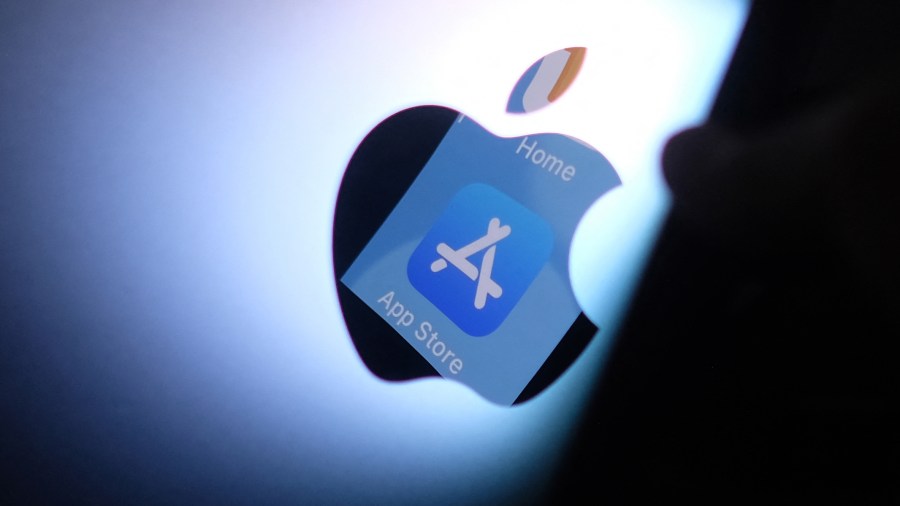App stores are — slightly — relaxing control over payment systems

Google and Apple have been slow to relinquish the hefty commissions they charge on app payments. Developers have been pushing for alternatives to the payment systems run by those tech giants, hoping they could save some money.
In South Korea, Google is now required to let app makers use alternative payment systems, but Google will still take almost the same commission. For instance, in cases in which Google takes 30% of revenue, it will charge developers that use other systems 26%.
Here in the U.S., Spotify recently reached an agreement with Google to charge subscribers through a non-Google system a smaller fee than usual, but there’s no word yet on how much smaller.
So will these changes actually spur competition, as intended?
Meghan McCarty Carino of “Marketplace Tech” put that question to Eric Seufert, an independent analyst with the website Mobile Dev Memo. He said such small tweaks might not be worth very much. The following is an edited transcript of their conversation.
Eric Seufert: So no, it’s not a lot, right? And, you know, the other thing to consider is that, you know, just because Apple reduces or Google reduces these platform fees by some percentage, whatever platform is used to facilitate these transactions is going to take a fee too, right? So for instance, in the U.S., Stripe takes 3%. Well, if the fee reduction was 3% but you have to pay 3% to Stripe, you’re not actually winning anything. And you’re also creating a much more convoluted checkout process, right? So the developer wouldn’t win anything, [the] developer ultimately won’t gain anything. They’d lose a lot of money by doing this.
Meghan McCarty Carino: Is there a discount big enough that it would make a real impact?
Seufert: It would have to be very, very large, right? So I wrote a piece about this back in August called “Is app store regulation too little, too late?” And I wrote this because a bipartisan bill called the Open App Markets Act was introduced in the Senate. And it would impose new rules on the operation of app stores, and specifically around like payments processing. And I said, look, this kind of regulation, it’s probably not going to have much of an effect now because the winners have won. And I think the time to impose that regulation would have been many years ago, in the kind of formative years of the app ecosystem. But I think at this point, consumers are so trained to use the native process, and it’s also just so much more convenient than any alternative process ever could be, even if you eliminated the platform fee for off-platform payments, I don’t think developers would utilize it.
McCarty Carino: So it sounds like you’re saying that these reduced commissions are probably not enough to make a difference. But is there something significant about just the very fact that governments are forcing these app stores to open up? Is this a start?
Seufert: Well, we’ll see. I think a really interesting development was Spotify announced that it had entered into a partnership with Google whereby it would offer alternative payments within its app. My sense is that that program offers a much more meaningful discount than just a 4%. So I think Google is doing that to preempt the Digital Markets Act. The text of that has been approved in the European Parliament, and the Digital Markets Act does regulate the treatment of payments within mobile platform stores. So my sense is they recognize, hey, the wind is blowing in this direction. We should preempt this, we should get ahead of this, and we should be ready when this regulation does go into effect.
Related links: More insight from Meghan McCarty Carino
Back in August, when Eric Seufert wrote about the Open App Markets Act, which Congress is still considering, he argued that this latest regulatory effort could be too little, too late. He also noted that new developments in app tracking transparency have actually made small developers even more reliant on Google and Apple because they can’t use targeted advertising and now depend even more on the discovery function in app stores.
Apple CEO Tim Cook weighed in on regulation efforts like the Open App Markets Act in a keynote speech at a privacy conference in Washington, D.C., on Tuesday. According to The Washington Post, Cook argued that opening up the app store would “undermine” the privacy and security the brand is known for.
And Apple has shown elsewhere it’s not giving up without a fight and a lot of spending. When Dutch regulators required the company to offer alternative payments for dating apps in December, Apple failed to come up with a proposal that satisfied regulators, which cost the company 5 million euros a week for a total of 50 million euros, or just about $54 million.
For comparison, Apple made almost $35 billion in profit just last quarter.
The future of this podcast starts with you.
Every day, the “Marketplace Tech” team demystifies the digital economy with stories that explore more than just Big Tech. We’re committed to covering topics that matter to you and the world around us, diving deep into how technology intersects with climate change, inequity, and disinformation.
As part of a nonprofit newsroom, we’re counting on listeners like you to keep this public service paywall-free and available to all.
Support “Marketplace Tech” in any amount today and become a partner in our mission.












